
As the last traces of snow melt and signs of spring pop up along the Great Miami River, we’re ready to shake off winter and get back outside. But first, follow these spring lawn care tips for Dayton to help your grass recover from the cold and prepare for the months ahead.
Oh, and check your lawn mower before your first mow. Sharpen your mower’s blades so you are ready for mowing season.
1. Test Your Soil
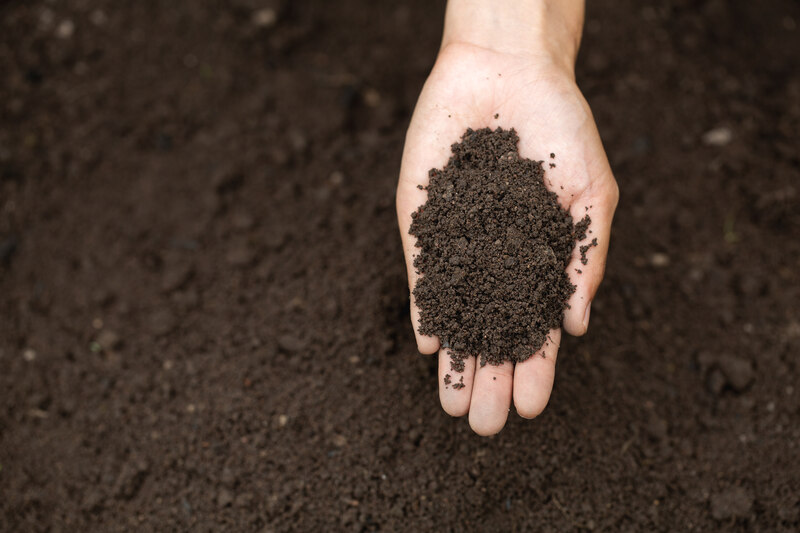
Before you apply any fertilizer this spring, test your soil to see what your lawn actually needs. A soil test measures pH levels and nutrient content, helping you identify any deficiencies that could be keeping your grass from being lush and healthy.
A soil test includes custom fertilizer recommendations, so you won’t waste money — or harm your lawn — by over-fertilizing.
While you can use an at-home test kit (picked up at any garden center) to check basic pH levels, we recommend sending a sample to your local Extension Office for a more detailed analysis.
See Related:
— Reasons Why Soil Testing Is Important for the Lawn
— How to Use a Soil Test Kit on the Lawn
— When to Test the Soil pH of Your Lawn
— Why Test the Soil pH of Your Lawn
2. Aerate Your Lawn (if Soil is Compacted)
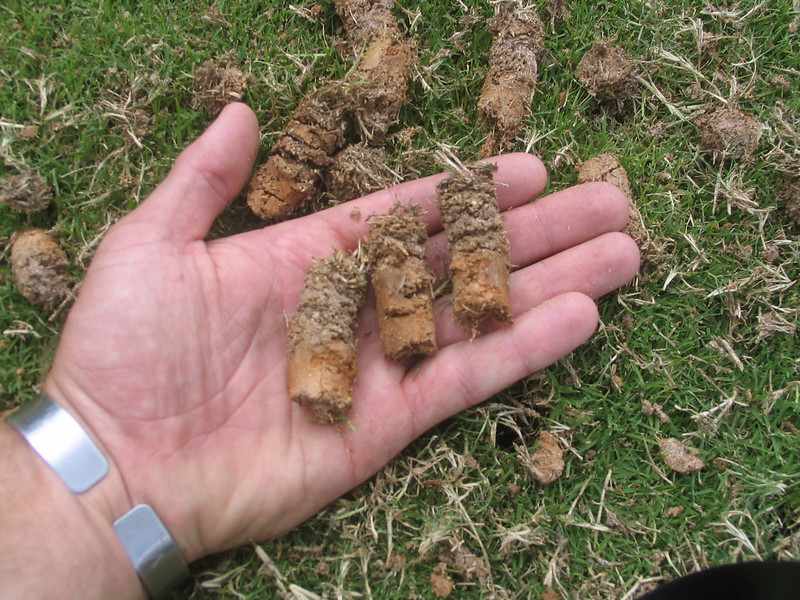
While fall is the ideal time to aerate lawns in Dayton, early spring aeration can be beneficial — especially if your soil has become compacted over the winter. Compacted soil prevents grass roots from getting the nutrients, water, and air needed to grow strong and healthy.
Aeration works by punching small holes into the soil, loosening it up and allowing essential elements to reach the root zone. Aeration also helps improve the effectiveness of fertilizer and herbicide applications.
See Related:
— How to Aerate and Overseed Your Lawn
— When and How Often Should You Aerate Your Lawn?
3. Fertilize at the Right Time
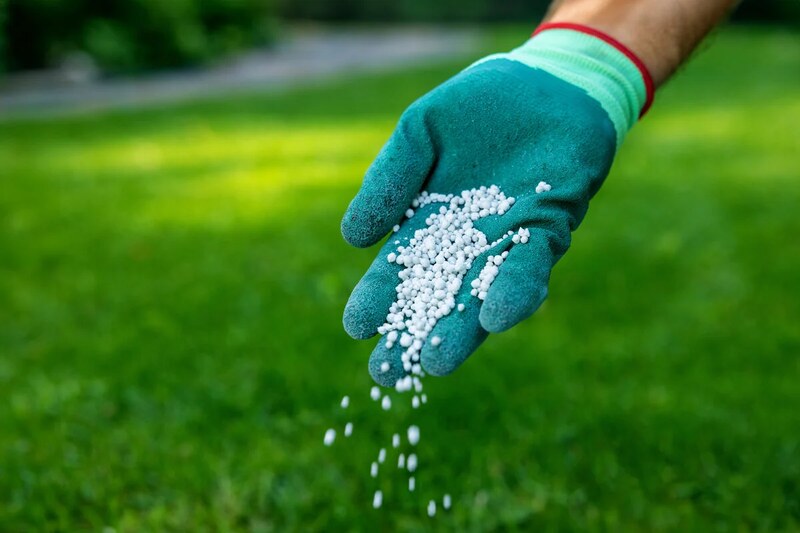
Applying fertilizer in the spring will help your grass grow strong roots and come in healthier. Fertilizer will help your lawn to withstand environmental stressors, like the changing weather here in Dayton.
A lawn care professional can help you figure out the best timing for this first fertilizer application of the year, and put together a schedule for other fertilizer applications later on. However, Scott Zanon, from the Ohio State University, recommends the following spring schedule:
- Fertilize between April 1 and 15 with a slow-release fertilizer.
- Make a second application around May 15 to 30 with a straight fertilizer (only one nutrient type).
See Related:
— How to Fertilize Your Lawn
— When to Fertilize Your Lawn
4. Get Ahead of Weeds Early
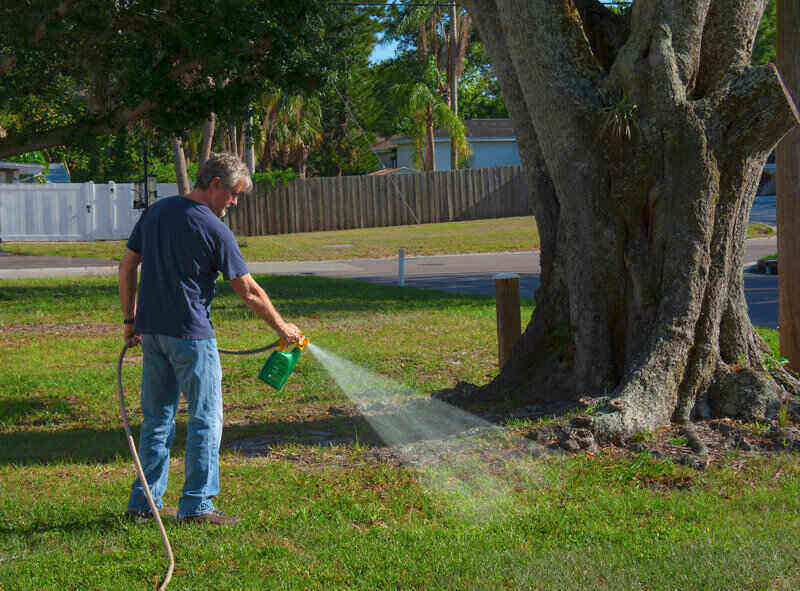
Weeds may pop up in your otherwise beautiful lawn. Get ahead of these weeds by applying a pre-emergent herbicide between late March and early April. Timing is key: Applying before soil temperatures consistently hit 55 degrees gives you the best shot at preventing weed seeds from germinating.
If you miss the timing for that or a few weeds still manage to pop up, apply a post-emergent herbicide to kill them or pull up the weeds by hand while they’re small.
See Related:
— Most Common Weeds of Ohio: How to Identify and Control Them
— Best Time to Apply Crabgrass Preventer in Ohio
— When to Apply Weed and Feed in Ohio
— How to Apply Pre-Emergent Herbicides
5. Reseed Bare Spots
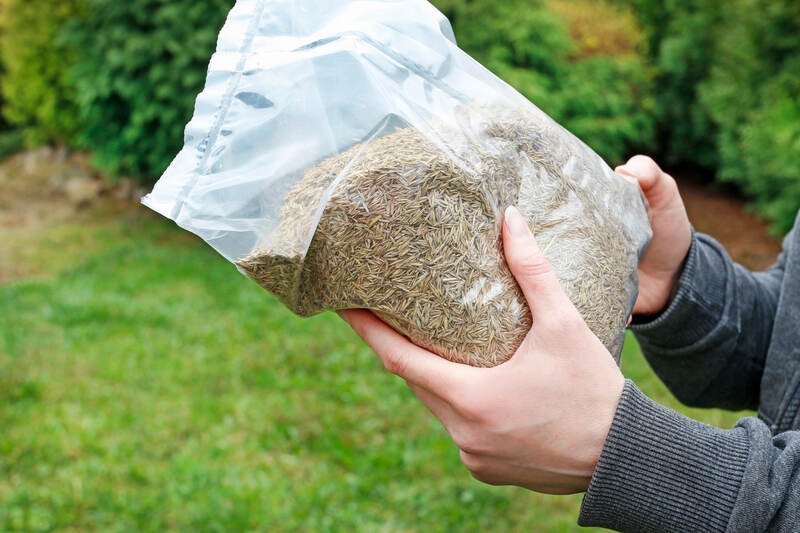
If parts of your lawn didn’t survive the winter, spring is a good time to reseed those bare or damaged areas. Filling in these spots helps prevent weeds from taking hold and keeps your lawn looking full and healthy.
For spring seeding, aim for the window between March 15 and April 30.
However, if you’re considering overseeding your entire lawn, it’s better to wait until fall, when conditions are more favorable for cool-season grasses in Dayton.
See Related:
— Clear Signs You Need to Overseed Your Lawn
— When to Overseed in Spring
— How to Overseed a Lawn in 8 Simple Steps
DIY or Hire a Pro to Give Your Lawn a Strong Start in Spring
With the right care, your lawn can bounce back from winter and thrive through the growing season.
Need help preparing your lawn? Visit our Dayton lawn care page to hire a local LawnStarter pro to help with all your spring lawn care needs — and to mow your grass, trim around fences and flower beds, and blow debris off your driveway, sidewalk, and patio through the year.
In addition to Dayton, LawnStarter provides lawn care services to other Ohio cities, including Cleveland.
Read More:
— Best Ohio Native Plants
— Best Grass Seed for Ohio
— How to Prepare Your Lawn for Winter in Ohio
— Common Lawn Pests in Ohio
Main Image Credit: Photo of a lawn mowed by a LawnStarter Pro in Dayton, OH